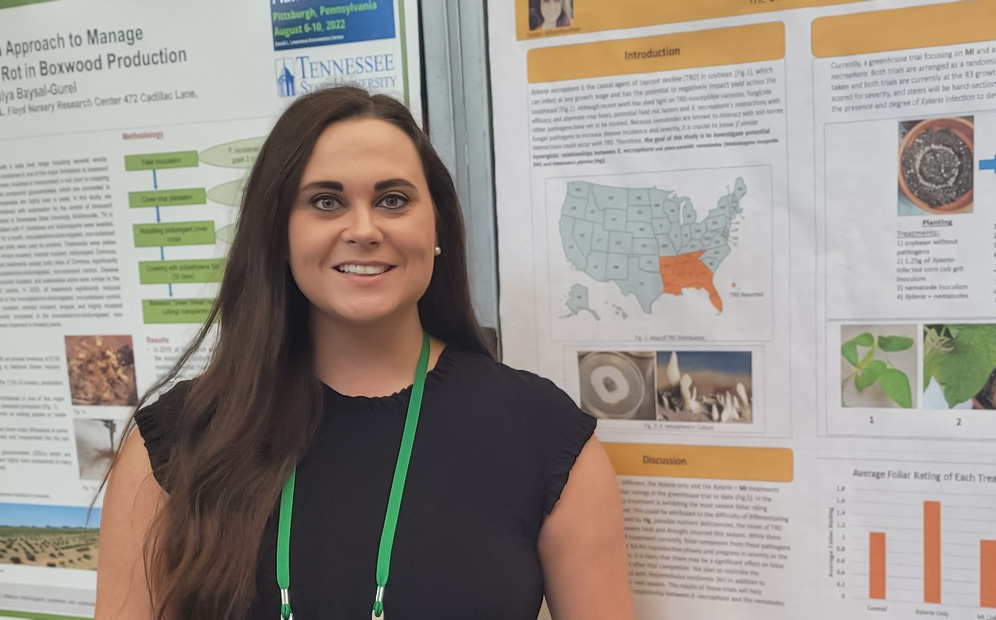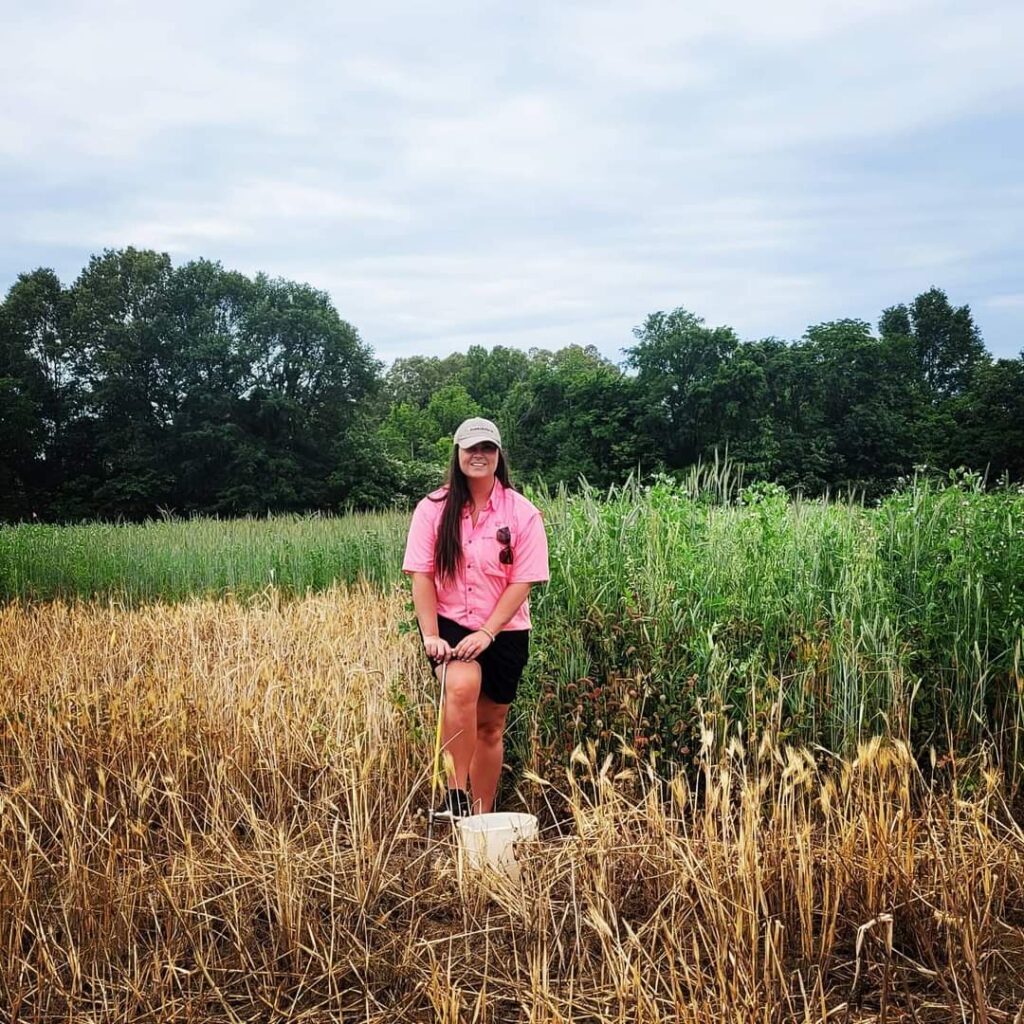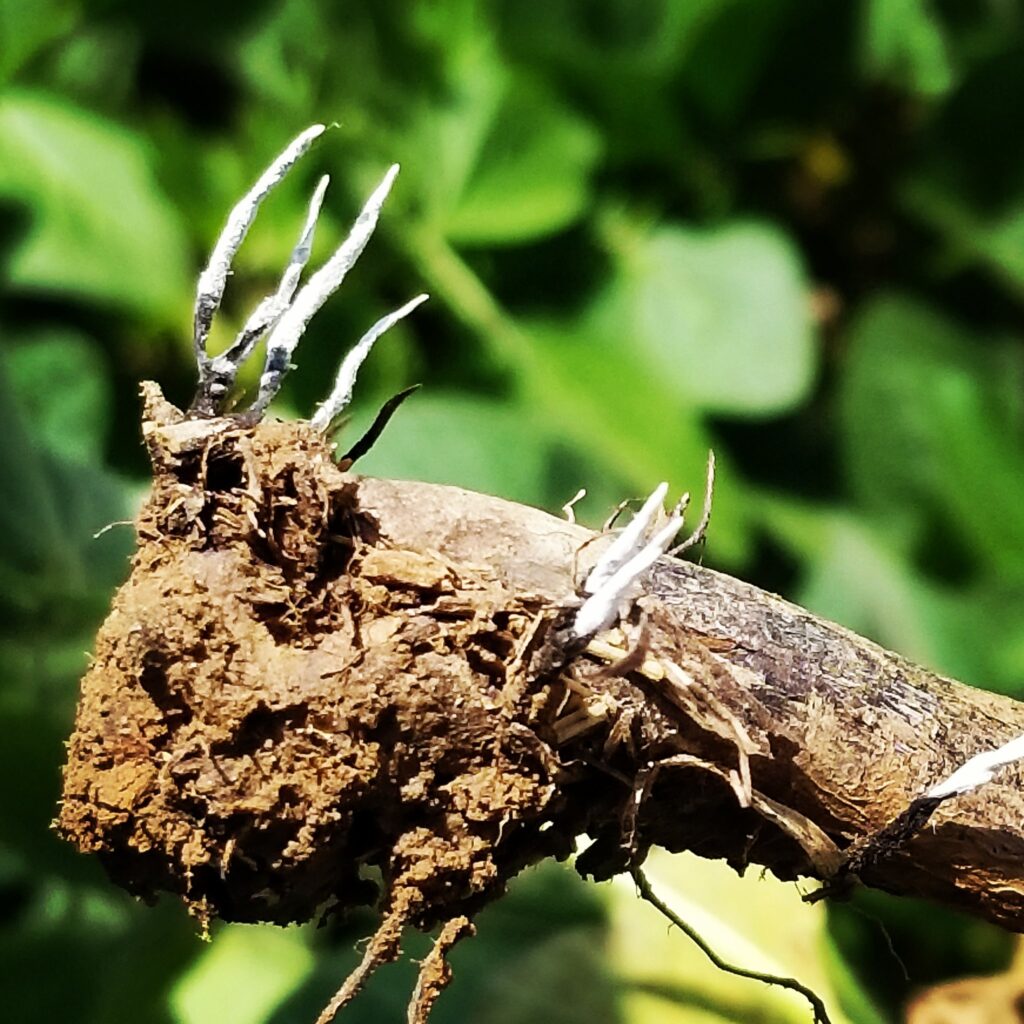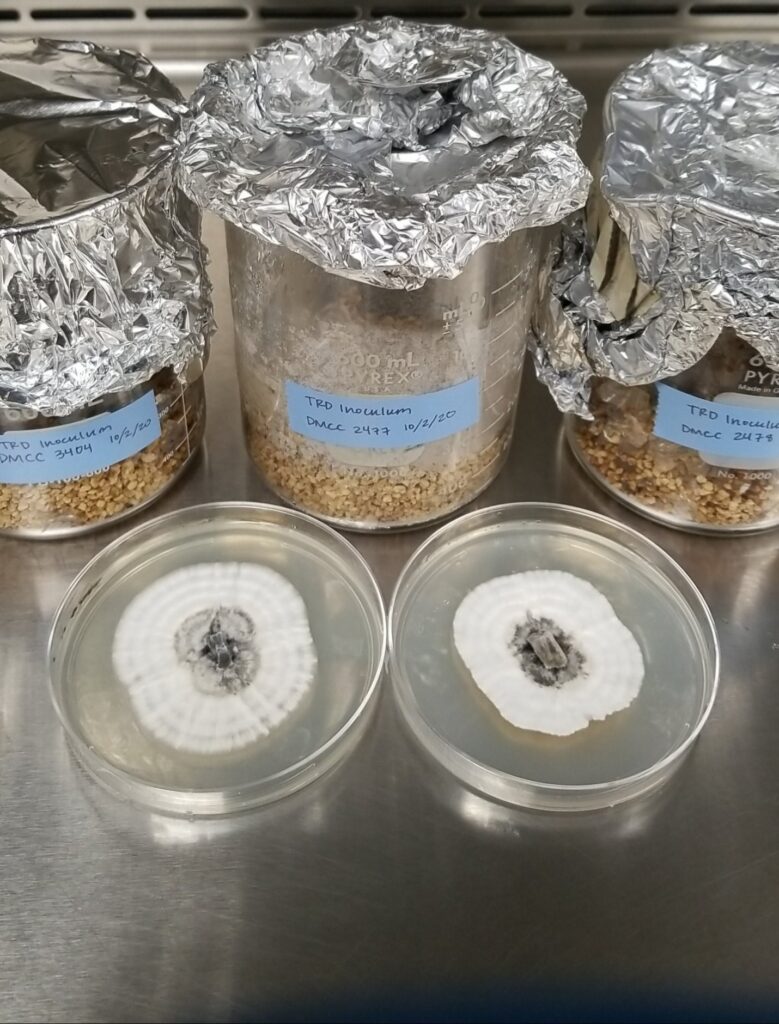
Shelly Pate, a doctoral student concentrating in plant pathology, studies the relationship between nematodes and an emerging soil-borne fungal pathogen (Xylaria necrophora) to help farmers safeguard their crops. As a leader within the academic community, Pate actively collaborates with fellow peers to enhance the graduate student experience within the department. Wither a passion for science and helping others, Pate aims to improve farming practices and benefits for all.
Q&A with Shelly Pate
Can you tell me a little bit about yourself?
My name is Shelly Pate. August 2022 marked the beginning of my 3rd year as a Ph.D. student at the University of Tennessee. My advisor is Dr. Heather Kelly, and she is stationed at the West Tennessee Research and Education Center in Jackson, TN. I spend most of my time on main campus in Knoxville. However, I travel to Jackson to set up/harvest my field research trials as needed.
What is your concentration?
Sustainable Disease and Integrated Pest Management
What is your current research question?
My project involves working with nematodes and soybeans in two different capacities.
More specifically, I am investigating any potential relationships between economically important nematodes (soybean cyst, southern root-knot, reniform) and an emerging soil-borne fungal pathogen (Xylaria necrophora). In addition to this part of my project, I am also researching how different factors associated with cover crop management before soybean planting can affect yield parameters and populations of soybean cyst nematode/other soil organisms.



What courses are you taking?
I have completed all of my course requirements, and I am now only taking dissertation hours! I plan to take my preliminary exams in the Spring.
What kind of extracurricular activities do you participate in?
In the professional realm, I serve as the President of the Entomology and Plant Pathology Graduate Student Association. I am also the Senior Graduate Student Representative of the Southern Division of the American Phytopathological Society.
Outside of school/work I like to spend my free time reading, baking, playing “cozy” games on my Nintendo Switch, and watching terrible reality TV shows while cuddling with my cat, Bentley.
How has your academic training at The University of Tennessee prepared you for a career in the industry?
In 2020, I received the Chancellor’s Award for Extraordinary Professional Promise for UTK. Since then, I continue to take advantage of many opportunities for professional development. I think most of the opportunities I have had for professional development have come from serving as President of our department’s GSA, the many conferences my advisor has allowed me to attend, and being a student in an extension-based program. Through being a student leader, a research presenter, and working in extension outreach, I have learned how to converse/collaborate/problem-solve with a diverse group of people in very different settings.
I have also had many opportunities to collaborate on research with professionals from different disciplines and career sectors. That research has been a combination of applied field work and laboratory work. Therefore, I think all of the aforementioned opportunities have made me a well-rounded professional in terms of leadership, communication, and research abilities.
What do you believe is your biggest academic achievement?
So far, my biggest academic achievement has been receiving the Friends of Southern IPM Masters Student Award before beginning my Ph.D. work in 2020. Each year, the Southern IPM Center recognizes those with extraordinary potential to contribute to the development and implementation of research, extension, or implementation of Integrated Pest Management (IPM) in the Southern Region of the United States.
Any advice you would like to share with a prospective student?
I think it is incredibly important to give yourself a lot of grace. In my experience, as you begin a master’s degree you will feel pressured to really “prove” you belong in graduate school, and that’s on top of adjusting to a whole new world of academia, research, and professionalism. As a Ph.D. student, you will feel like you need to do everything right the first time around so that you can finish your degree and start applying for jobs.
When you feel all of these pressures to meet certain expectations, it can make it so hard to readjust your mentality and attitude back in a positive direction when things do not go your way. So, I think it’s important to come into graduate school with the mindset that failures will happen, but you can learn from those failures and use them to become a better person, professional, and researcher.
